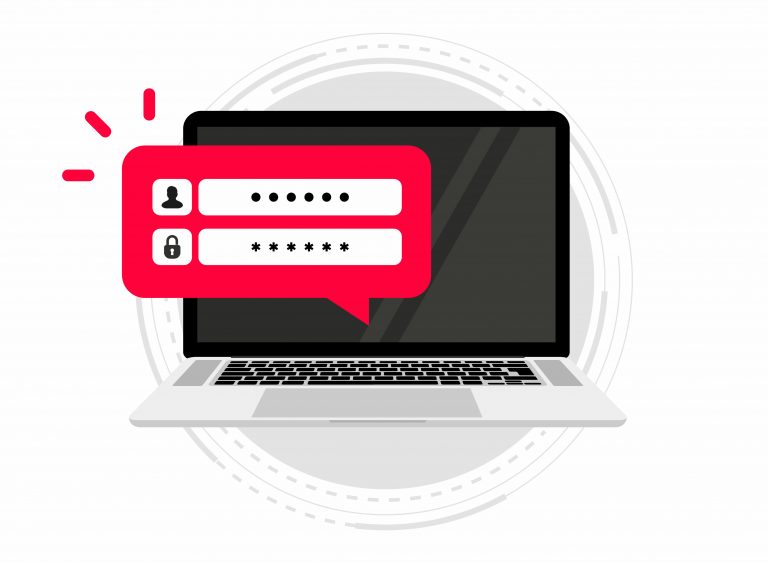Securing Your Health Data: Privacy Measures in Telemedicine
January 25, 2024Telemedicine has become an increasingly popular option for accessing healthcare services, allowing patients to consult with healthcare providers remotely. What…

Do we have to delete personal data if a person requests it? Learn everything you need to know in the guide below.
Having personal data publicly available on the web may not sit well with some people. In such a case, individuals can opt to request the one who posted the info to remove personal information about them.
For service providers, however, it is worth wondering whether all deletion requests should be processed and approved. Are service providers legally required to delete data upon request?
Before answering whether the service providers should delete the data, let’s first look into what companies collect and offer personal data.
While businesses across several industries need data to operate, data brokers function mainly on data. They serve companies by providing data.
A data broker or information broker is a company that specializes in data collection and data sharing. It’s like data is the company’s main product.
This company gets the data in various ways, usually on its own or by purchasing it from other businesses.
Information brokers also scrape through the internet to get their hands on good information. Usually, such brokers aggregate this data with what they got from other sources.
There are several data brokerages from around the world. The industry is rapidly booming.
While data brokerages make up an entire industry, there are several types of data brokers. Some of the most popular brokers include mugshot sites and people search sites.
Mugshot sites, as its name suggests, offer personal info that pertains to a person’s criminal record.
On the other hand, people search sites provide personal information about almost anyone from a specific place (usually from the US). People can find details such as one’s home address, social media profiles, email accounts, family members, and other additional information on such sites.
In most cases, data brokers source their information from online public records. Because public agencies maintain these records, it is legally available to the public. Such records include census, birth, property, and other documents.
Other than that, most companies also browse through Facebook or another social media platform to get information from public social media profiles. They also browse through online shopping sites and other common websites to get all this information.
Facebook is among the favorites of many companies, with over a billion users accessing their own Facebook accounts daily. Companies are getting sophisticated in getting data from consumers.
That being said, simply going on a data broker site can help you find out personal information about many people. All you need to do is to search for someone and then browse through the search results to find what you are looking for.
While this can be done using Google, the search engines of data brokerages may give equally good or even better results when searching for people. You can find so much information in Google search results, but because Google isn’t a specific people search site, the results are bound to be broad.
In most cases, details about a person’s online account are included in data broker sites such as people search sites. You can find a person’s online accounts, old accounts, email addresses, and other relevant accounts.
The availability of these services makes it easy to know about and contact someone through their contact numbers or account. However, even if this could be remarkably convenient, it could compromise data protection.
That being said, those who take privacy seriously may not like the idea behind such kinds of services. Having such sensitive information available to just anyone’s eyes makes it easier for this information to fall into the wrong hands.
In such a case, consumers are faced with security issues. For one, they are placed in a risky position of exploitation through identity theft.
However, the law also ensures that people’s privacy should be protected even if such services are available to the public. This condition is why most data brokers provide a process for people to delete their personal information from the site.
If people find their personal data listed on such a site, they can place a request to have the data deleted. Requesting deletion is within their rights, given how their identity data is publicized.
These people can process their deletion requests for the data broker to permanently delete their personal information.
Requesting to remove personal information may vary from one data broker to another. It would be prudent to get to know the procedure for the requisition from the company’s web page.
In several cases, people search sites and mugshot sites have a specific opt-out page for users to process the removal themselves. Individuals can fill up and submit to have their personal information deleted.
Before looking into whether an information broker should process all of these requests or not, it is important to understand the efforts on the side of the data broker first.
Especially for companies in the data brokerage industry, an intact privacy policy is necessary for the public to feel still protected.
In most cases, companies are opaque about what they do with this information on the web. This communication may be indirect at times, but it is there nevertheless. Given this, data brokerages may not be liable when it comes to withdrawing information because they have made their policy public and accessible.
Moreover, with respect to people’s rights, several companies include the choice to opt out in their privacy policy. Companies acknowledge how some people would like to have their record removed. Pressure from privacy advocates like the Electronic Frontier Foundation has tightened up the requirements for certain brokers to update their privacy policies.
Aside from the privacy policy that a data broker has to govern itself, there are also privacy laws that brokers should adhere to.
While certain internet laws govern the digital space, privacy laws may differ from one state to the other in the US. Hence, it is prudent for one to know the relevant laws of the state and see if the deletion request for the specific case needs to be processed or not.
That being said, when approving or disapproving an erasure request, an information broker must adhere to both parties’ laws and rights.
When it comes to processing or disregarding an erasure request, it is important to know the grounds for approval and the grounds for disapproval. Let’s look into both.
For one, if the data broker is bounded by the GDPR (General Data Protection Regulation), such a company must adhere to the laws under the regulation.
One section of the regulation focuses on the rights of data subjects, the ones whose data got used by data brokers. These rights have to be honored by businesses that the GDPR covers. If the GDPR covers the data broker, the broker has to adhere to these rights.
One specific data subject right is the right to erasure or the right to be forgotten. This right specifically means that a person may request personal data erasure. This right is something that data brokers under the GDPR must not turn a blind eye to.
While a data subject has the right to request erasure, it is also important to know that there are legal grounds for data retention.
For one, according to Recital 65 of the GDPR, a company can retain personal data in the following situations:
These conditions show that there are grounds for data retention that allow a data broker to keep the data even when individuals make a deletion request.
Considering both the conditions for approval and grounds for retention, you must know that not all delete personal data requests need to be processed. Hence, to meet halfway, both parties should know when an information broker can process such requests or not.
To learn more about how you can protect your internet privacy and remove personal information from the web, contact RemovePersonalInformation today by dialing 844-445-6096 .

Telemedicine has become an increasingly popular option for accessing healthcare services, allowing patients to consult with healthcare providers remotely. What…

In a world where cyber threats are becoming increasingly sophisticated, the importance of having strong passwords cannot be overstated. But…

Are you looking for a new job while still employed? Discreet job searching online is the key to keeping your…